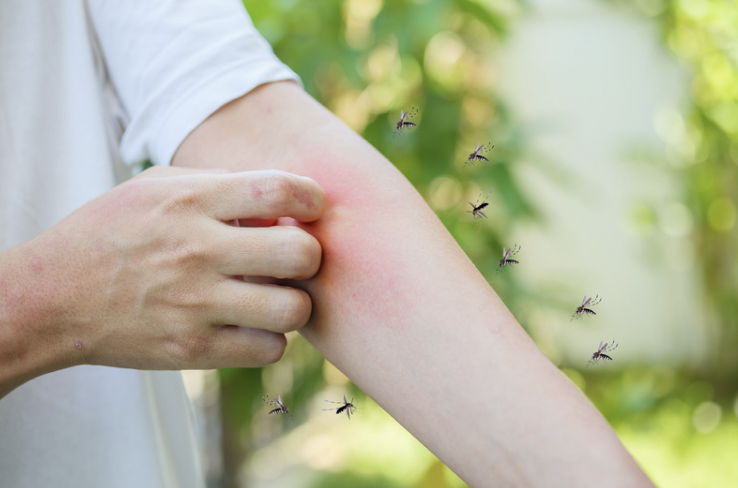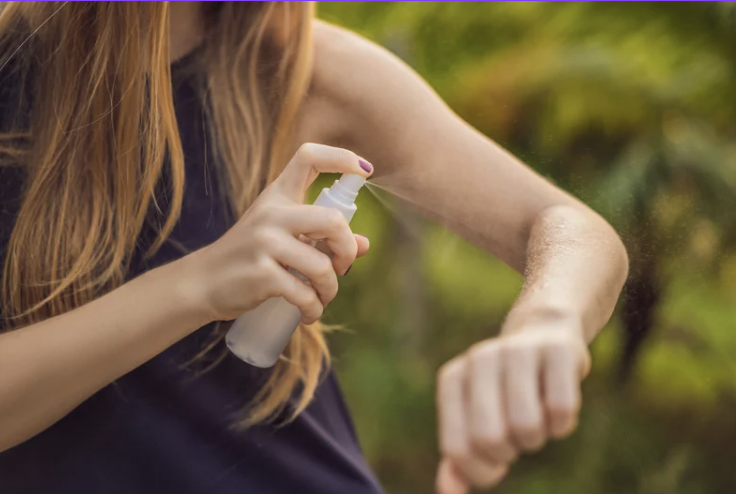
Layanan IV Hangover di Bali: Kapan Cocok dan Kapan Harus Periksa Dulu
Bangun dengan hangover parah di Bali? Matahari Januari 2026 baru saja mengintip di balik rimbunnya pepohonan di villa Anda di
Picture this: You’re living your best Bali life. Sun-kissed skin, sand between your toes, and a Instagram feed that’s making all your friends back home green with envy. But suddenly, the paradise script flips. You’re feeling like you’ve been hit by a surfboard, and not in a cool, surfer-dude way.
Enter Dengue Fever—the uninvited guest to your island party that nobody RSVP’d for.
Now, before you start frantically Googling “How to ship my entire medicine cabinet to Bali,” take a deep breath. We’re not here to rain on your tropical parade. Think of this as your ultimate Dengue survival guide, helping you stay one step ahead of those pesky mosquitoes.
Curious about what to do if your “island glow” turns into a full-blown fever? Or how to mosquito-proof your vacation without looking like you’re auditioning for a hazmat suit commercial? We’ve got you covered.
So, grab your coconut water (you’ll need to stay hydrated for this), and let’s dive into everything you need to know about navigating Dengue in paradise. By the end, you’ll be armed with the knowledge to keep those mozzie party crashers at bay and get back to your regularly scheduled Bali bliss. Let’s dive in!
Dengue Fever is like the unwelcome guest at your tropical party. It’s a viral infection spread by Aedes mosquitoes, those pesky little biters that love hanging out during the day. You might not see them coming, but they’re there, especially in places with standing water.
Imagine this: You’re chilling by the pool, sipping on a fresh coconut, and without you noticing, a mosquito silently lands on your arm. A quick bite later, the virus is in your bloodstream, and within a few days, you’re feeling like you’ve been hit by a truck. Not exactly the souvenir you were hoping for, right?
You’ve got a full day planned—maybe exploring Ubud or hitting the beach in Seminyak—but then you’re hit with a fever out of nowhere. Here’s what Dengue might feel like:
If you’re feeling any of these, it’s time to stop guessing and get checked out. Book a lab test at Trishnanda Care Centre to confirm if it’s Dengue.
Let’s not sugarcoat it—Dengue fever is serious business. While some cases are mild and feel like a tough flu, others can escalate into severe Dengue, also known as Dengue Hemorrhagic Fever (DHF) or Dengue Shock Syndrome (DSS). This isn’t just a bad day; this can be life-threatening. Symptoms include bleeding, blood pressure drops, and even organ damage. It’s critical to catch the signs early and get the right treatment.
So, how do you know when Dengue has gone from bad to worse? Here are the key warning signs of severe Dengue:
If you’re in Bali and start feeling any of these severe symptoms, don’t wait—get to a doctor right away. At Trishnanda Care Centre, we offer doctor services that can provide immediate care and help manage your symptoms effectively. And if you’re unsure whether it’s Dengue or just a rough case of Bali Belly, we can also run lab tests to confirm it.

The Dengue rash is one of the more distinctive symptoms of the illness, and it’s something that often worries travelers. Initially, the rash may start as small, red spots (petechiae) on your skin, which are actually tiny blood vessels that have burst under the skin. It’s often described as looking like someone has sprinkled fine red pepper across your skin.
As the disease progresses, the rash can spread and become more pronounced, covering larger areas of the body. The itching can be intense, and the rash might feel hot to the touch. For some, the rash appears when the fever is breaking, which might make you think you’re getting better—only for the rash to spread and bring new discomfort.
If you notice a rash developing while in Bali, especially if it’s accompanied by other symptoms like fever and joint pain, it’s crucial to seek medical advice immediately. This rash is a sign that your body is reacting strongly to the virus, and it’s a clear signal to take action.

Nobody comes to Bali expecting to get sick, but a few simple steps can keep Dengue at bay:

Dengue can leave you feeling drained, literally. With symptoms like fever and vomiting, staying hydrated is crucial. Dehydration is your worst enemy. If you can’t keep fluids down, consider IV hydration therapy. Trishnanda Care Centre offers Dengue Hydration Packages that can help you stay hydrated and recover faster. Coconut water, soups, and electrolyte drinks are also great options.
Prevention is better than cure. The Dengue vaccine is available at Trishnanda Care Centre for IDR 1,000,000. It’s a small price to pay for peace of mind on your Bali adventure.
Dengue symptoms can mimic other tropical diseases like malaria or chikungunya. This is why it’s essential to get a proper diagnosis. At Trishnanda Care Centre, we offer lab tests that can confirm whether you’re dealing with Dengue or something else. Quick, accurate diagnosis means you get the right treatment faster, reducing the risk of complications.
Yes, Dengue fever is relatively common in Bali, especially during the rainy season. The tropical climate and standing water create the perfect breeding ground for the Aedes mosquito.
Dengue can range from mild to severe. In its most serious form, it can lead to Dengue Hemorrhagic Fever or Dengue Shock Syndrome, both of which can be life-threatening.
Look out for severe abdominal pain, persistent vomiting, rapid breathing, bleeding gums, fatigue, restlessness, and blood in vomit. These symptoms require immediate medical attention.
Use insect repellent, wear protective clothing, avoid peak mosquito hours, and stay in screened or air-conditioned areas.
If you experience symptoms like high fever, severe headache, and joint pain, it’s important to seek medical attention immediately. Getting a lab test to confirm Dengue is crucial. Early diagnosis can help manage symptoms and prevent complications.
Yes, it is possible to get Dengue fever more than once. There are four different strains of the Dengue virus, and infection with one strain provides immunity only to that specific strain. Subsequent infections with a different strain can be more severe.
There is no specific antiviral treatment for Dengue fever. Treatment focuses on managing symptoms, such as reducing fever and pain with paracetamol, staying hydrated, and monitoring for severe symptoms. In severe cases, hospitalization may be required.
The peak Dengue season in Bali typically coincides with the rainy season, which runs from November to March. During this time, the mosquito population increases due to the abundance of standing water, which serves as breeding grounds for the Aedes mosquito.

Bangun dengan hangover parah di Bali? Matahari Januari 2026 baru saja mengintip di balik rimbunnya pepohonan di villa Anda di

Kapan waktu terbaik untuk melakukan tes NS1? Tes NS1 (Dengue Early Antigen) paling akurat dilakukan dalam 1 hingga 3 hari
Contact Our Doctor Now